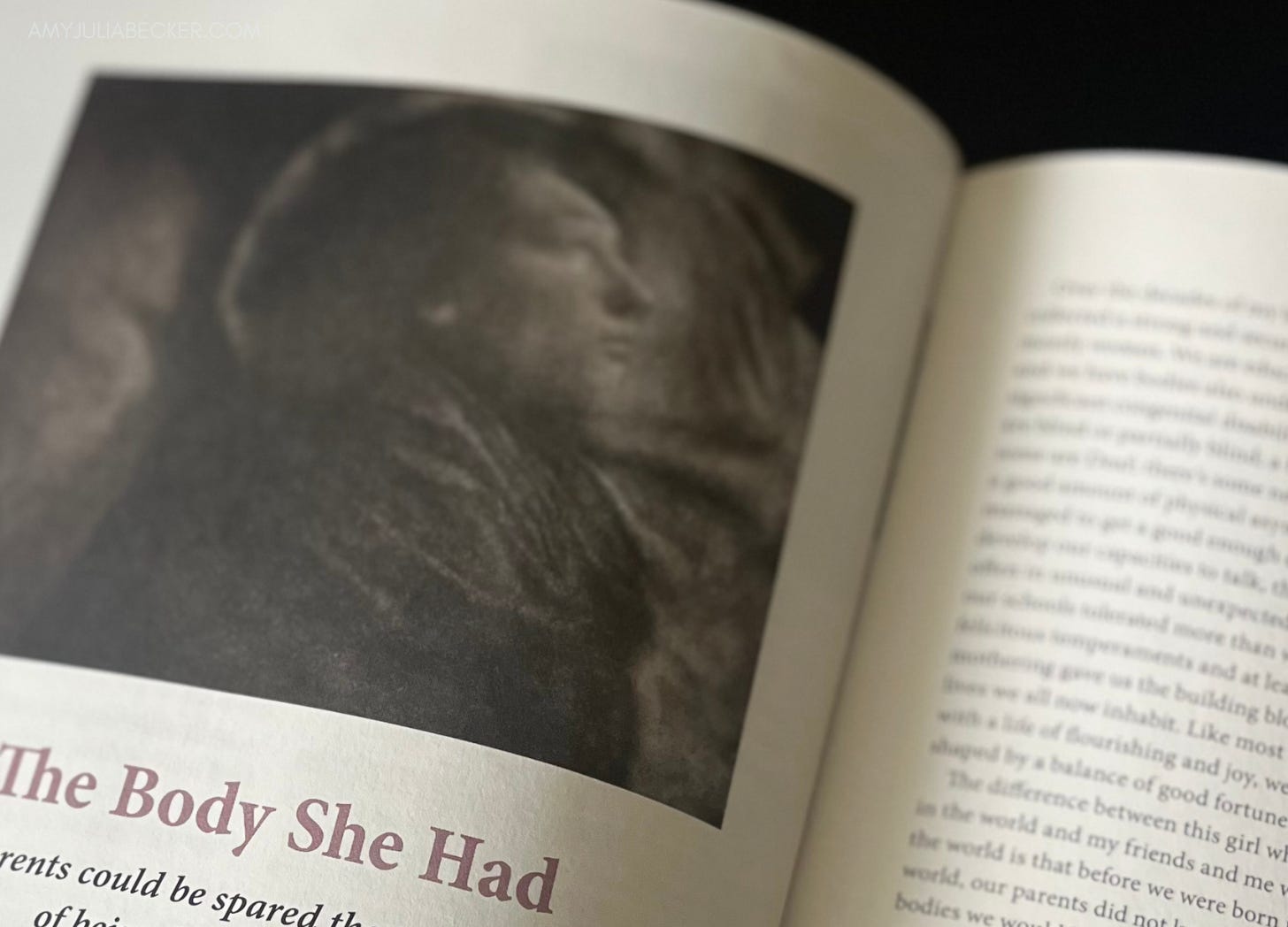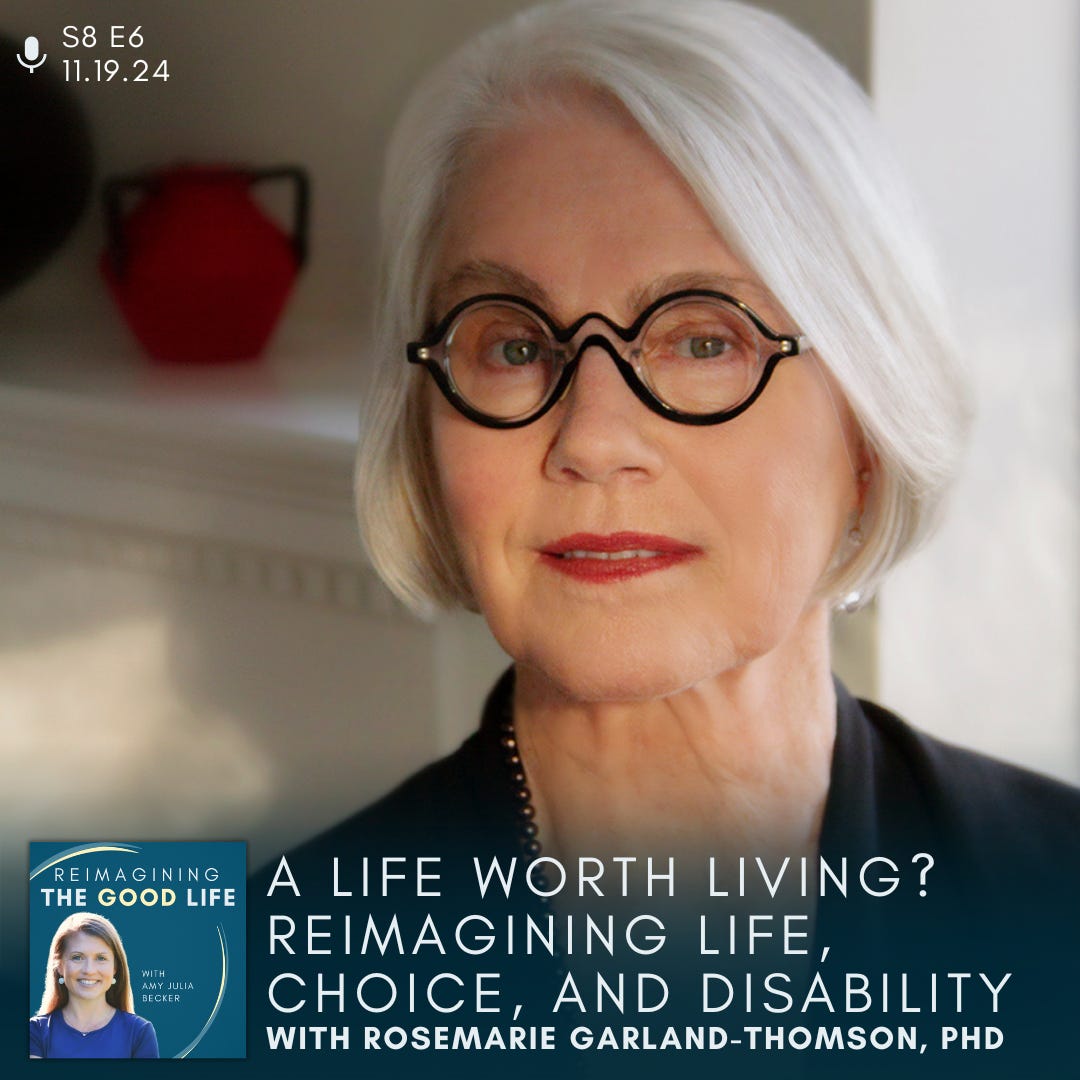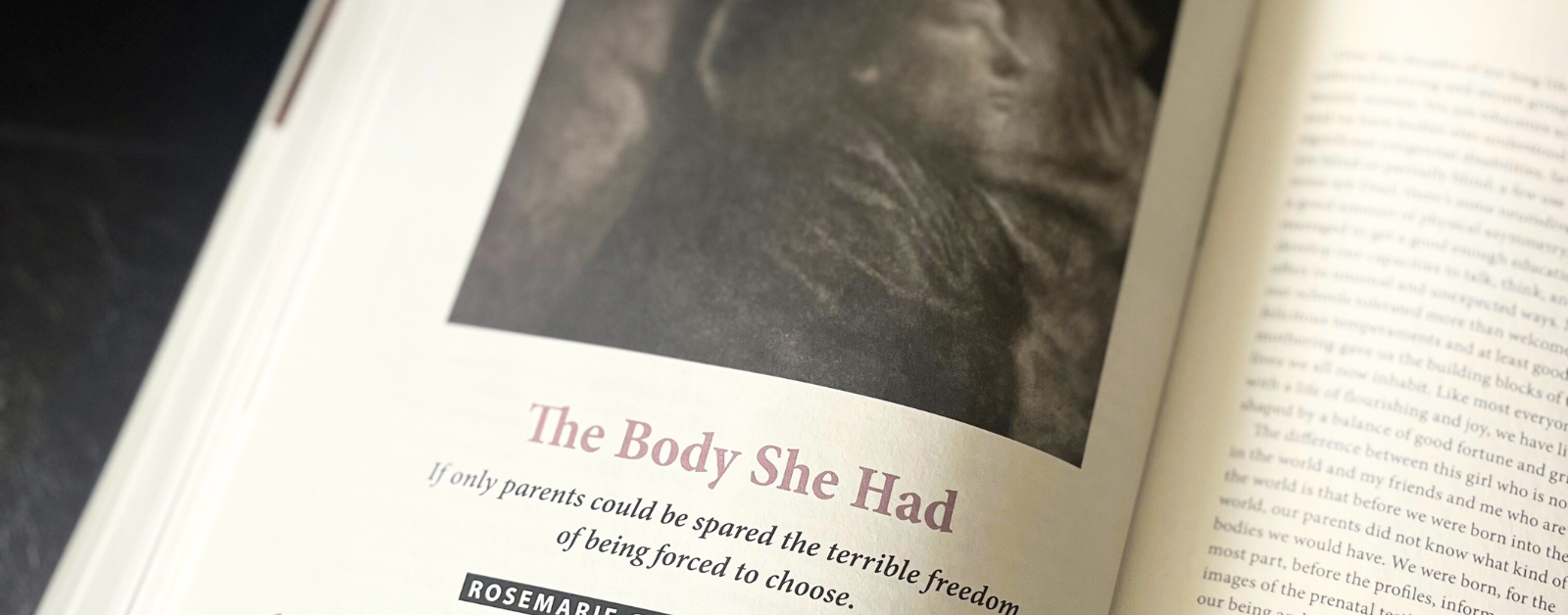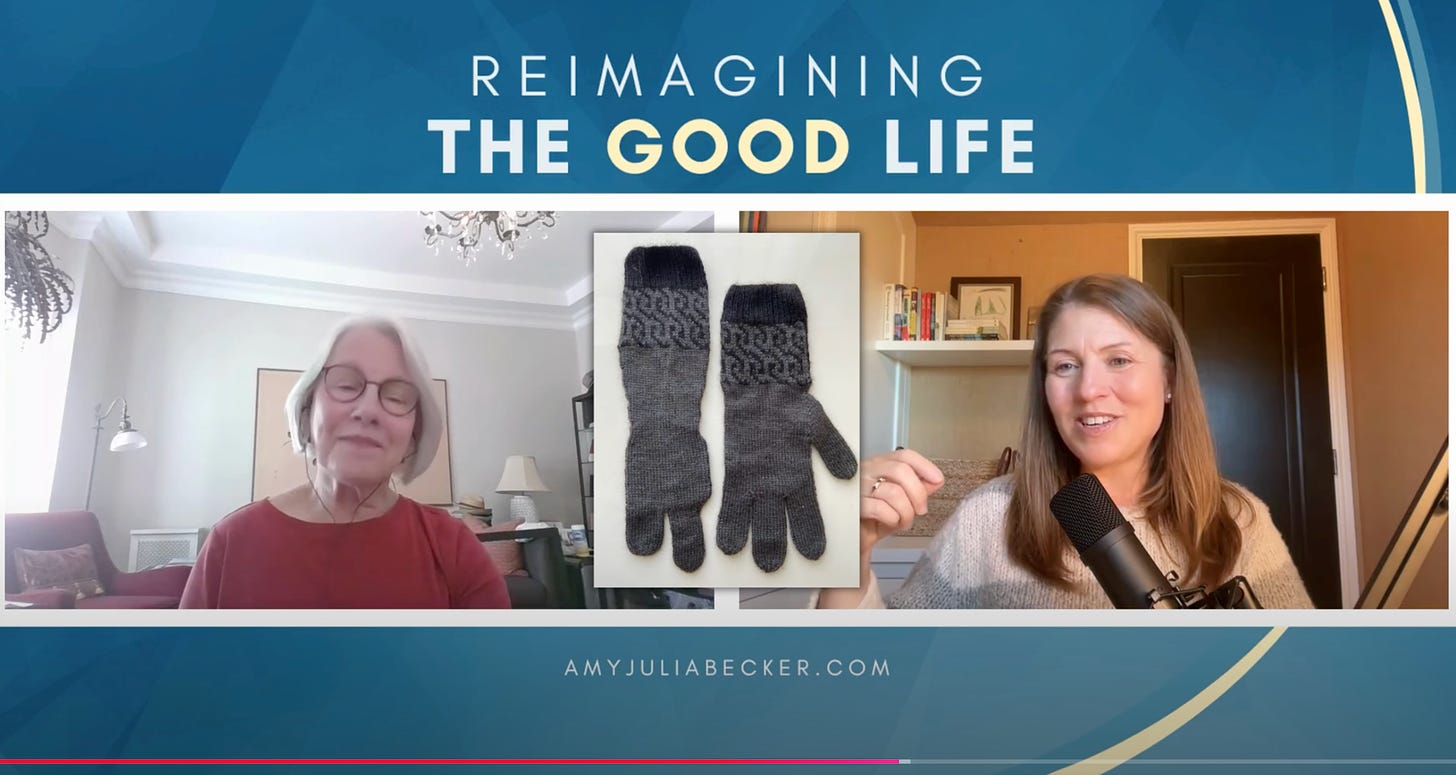How do we decide who has a life worth living?
I thought about this question as I listened to bioethicist Rosemarie Garland-Thomson, PhD, tell me about a group of friends. These friends, like her, live with disabilities. These friends, like her, enjoy the lives they’re living. As she talked about her friends and their good lives, she said, “Disability is not what determines human flourishing.”
Her statement comes out of her experience living with a disability in a world that, as she describes it, often assumes that “disability is a disqualifier from the good life, from human flourishing.”
Rosemarie lives with a disability. You might not.
I live in a family affected by disability. You might not.
But I would guess that you too have asked the questions:
- What makes a life worth living?
- Who decides?
- Am I disqualified from “the good life”?

What Makes a Good Life?
I’ve appreciated Dr. Garland-Thomson’s writing for years, and her recent Plough essay prompted our conversation, a conversation for all of us who question culture’s assumptions about achievement, productivity, and the good life. She points out that her life contradicts culture’s assumptions. “I’ve had an extraordinarily good life… It’s impossible to predict what a good life will be.”
Although it may be impossible to predict exactly what makes a good life, our culture continues to insist on trying. But the version of the good life held up by our culture is a mirage. It doesn’t exist. It’s no wonder, then, that we’re unprepared, even afraid, when we experience the actual reality of being human. There’s so much that’s unexpected and unimagined. Birth and illness and aging and disability and a myriad of human experiences refuse to be contained within culture’s expectations of a life worth living.
So what do we do when we find ourselves with a variation of life that no one seems to want?
When you feel disqualified from the good life, here are four things to remember:
1. Remember that:
The “good life” predicted by our culture doesn’t exist. Your life doesn’t have to measure up to a mirage.
2. Remember that:
When you push past the messages of our culture, you’ll find that there are many of us who do want the varied good-life realities that come with being human. Find those stories.
Rosemarie and her friends have particular stories to tell of their good lives, of the lives they want. Our family has a particular story to tell of the good life we have. It’s not a perfect life, but it’s the life we want, and it’s a life worth living.
3. Remember that:
It’s possible to move past the fear of the unexpected and to move toward love. Turn your attention toward your embodied life—toward the unique faces you behold, the hands you hold in yours.
As Rosemarie writes:
“To love is the act of recognizing one another, of witnessing the uniqueness of distinct human beings, precious and irreplaceable.”
4. Remember that:
Human flourishing is not limited to one small definition of the good life. There are immeasurable ways to embrace the beauty and diversity of what it means to be human. There are immeasurable ways to live what Rosemarie calls “an extraordinarily good life.”
Human Flourishing
How can we redefine human flourishing in a way that welcomes the reality and gifts of being human in all its different forms? We begin by sharing our stories. In Dr. Garland-Thomson’s words, our “literature of welcome” creates an “openness to the unexpected” within our society. She tells a compelling story about mittens (yes, mittens!) around minute 32:30 of our conversation. It helps us imagine how to be people who are creating spaces and postures of welcome. (If you prefer visuals, you can watch that segment of our interview here!)
Our conversation is a compassionate and challenging meditation on which lives we value, how we make choices, and what it would look like for us to live in love. We discuss what is means to:
- be human
- live in community
- care for one another
- navigate the complicated ethics of selective abortion
- find the language and stories to talk about a life worth living

Listen on Apple🎙️ | Listen on Spotify🎙️ | Watch on YouTube🎬
I hope you’ll listen or watch and then tell me what you think. You can reply to this email or leave a comment. I know this conversation contains some tender topics, and I’d love to hear your thoughts.
Thanks for listening.
Let’s stay in touch. Subscribe to my newsletter to receive regular updates and reflections. Follow me on Facebook, Instagram, and YouTube and subscribe to my Reimagining the Good Life podcast.




